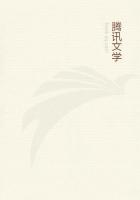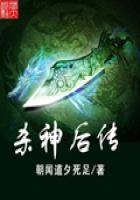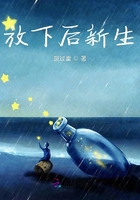SCHOOL DAYS
Vienna WAS a great city, even in those days, since for a long time it had been the residence of the Roman Emperors of the West. It was a Catholic city, though even in 1564, little more than forty years after Luther's revolt, the Lutherans in the city had begun to be quite numerous.
The Society of Jesus had been founded in 1540, only ten years before Stanislaus was born. But it had spread quickly. For some years now there had been a Jesuit house in Vienna. In i56o, four years before Stanislaus came to Vienna, the Emperor Ferdinand I had loaned to the Viennese Jesuits a large house next to their own, which they might use as a college. The Fathers built a connection between the two houses, so that they became practically one. Here they received boys from the city, from the country round about, even from Hungary and far Poland. Here Stanislaus took up his residence.
It was a ******r, less formal sort of school than we perhaps are accustomed to. The Fathers and the boys lived together, almost as one big family. They ate together in one large dining hall. There were always some of the Fathers with the boys in their games, as well as in their studies. It was a very pleasant place, and a very good place.
In those early days of Protestantism, Catholics, even Catholic boys, felt that they were in a fighting situation. The attacks upon the old faith woke new courage and devotion in those who remained faithful to the Church of the ages. And so, filled with that spirit of loyalty, that new earnestness which the times called forth, and living under the example of the ****** manly piety of their Jesuit teachers, it is no wonder that the boys in the College of Vienna were an unusually good set of boys.
They had their regular classes, in languages, mathematics, and such science as the age knew. Latin was then the language of all educated people in Europe, the language of courts, the common meeting ground of all nations. Many a time, both in those days and later; a noble proved his rank and saved himself from mischance by the mere fact that he spoke Latin. It was not a dead language then, as it is now. It was in current use. Greek was comparatively new in Western schools. And though from their beginnings the Jesuits were famous teachers, we can hardly suppose that in their new and small college at Vienna the boys were much troubled by the speech of Plato and Demosthenes.
Of their games it is hard to know much at this late day. Sword-play and bouts of a soldierly sort were common enough. These boys were almost all of noble birth; most of them perhaps looked for-ward to the army for their profession. So they held mimic tournaments and played games in which they hurled lances through suspended rings; they shot with bows and arrows; and of course they had matches in running, jumping and wrestling.
We know that Stanislaus did uncommonly well in the schools. He was quick, had a good memory, and was too sensible to be lazy. And though the writers of his life say nothing about it, we are quite sure that he excelled in games and sports also. For one thing, he as a general favorite, esteemed by all his fellows; and that must mean that he was one with them in their play. For another, he was naturally no dreamer or moper, but the jolliest, cheeriest sort of boy. And finally, the boy who walked twelve hundred miles in a few weeks must have been well accustomed to using his legs. Try thirty miles a day on foot, day after day, you football players and baseball players, you trained athletes, and say whether it is the work of a weakling or of a boy who never played.
But it takes more than success in studies and in games to account for his great popularity with the other college boys. Such success may win a certain admiration and respect, but it does not of itself win friends. And Stanislaus had pretty nearly every one for his friend. To do that requires other gifts, gifts of character. Everybody liked him, because he had such gifts. He was pious, but not merely pious; much more than pious, he was good. That means he was unselfish. There is only one way to make people really love you, and that is to love them. That is what Stanislaus did; he loved the people he lived with. He was naturally good hearted, and big hearted. He had kept away from petty meannesses. He had fought down his natural selfishness. He had learned not to be always seeking his own little advantage, not to put himself forward for praise, not to insist on his "rights," not to boast and carry a high hand with his comrades, not to talk a lot about himself. He had learned to forgive little offenses, and big ones, too, for that matter. He knew all about how our Lord had suffered and put up with things and forgiven those who hurt Him. And he loved our Lord so much, was so much at home with Him, that almost without effort he acted as our Lord would want him to act. He had plenty of spirit, and a whole world of pluck and daring; but he was not quarrelsome. Then he was as cheerful as sunshine, and he made every one else cheerful. Why, the boys could not help loving a boy like him.
Sodalities were rare in those days; but the college boys of Vienna had a sodality, devoted to the honor of our Lady, and under the patronage of Saint Barbara. At their meetings; the sodalists in turn had to address their companions, give a little talk about the Blessed Virgin, or on some virtue, or the like.
Whenever Stanislaus' turn came, the boys were all expectation. He was no older than most of them; indeed, younger perhaps. But he had an older head. He had done more thinking than they, and a deal more praying. He had no false shame or babyish timidity. If he had anything to say, he was not afraid to say it. And he certainly had something to say. It had come to be as easy for him to talk about our Lady and heaven as for other boys to talk about their mothers at home. He had treasured up stories of the Blessed Virgin's help, with which Catholic Poland was filled. He spoke simply, unaffectedly, of our Lady's love for us, of her power, her willingness to aid us. And from him, though simply their school mate, the boys heard these things eagerly. He seemed well privileged to speak, as indeed he was.
To talk about pious things, and do it acceptably, is a mighty hard matter. You have to know how. And the first part of knowing how is to be at home with pious things, to have thought about them, often and long, to have woven them into your life as Stanislaus had done.
The trouble with us is that we live so far removed from thoughts of God, of His Mother, that they never cease to be strange to us. We go blunderingly about mention of them, or we lack the courage to speak at all. But why should they be strange or remote? We are destined to live forever in heaven, we are the daily recipients of God's favors, we are sheltered, protected, every way by our Lady's loving care.
The things that touch us most nearly are the things of the spiritual world; they are the most thrillingly important; they are the only really important things. We are not afraid to talk baseball, or politics, or business. Why be afraid to talk of God's power, His dominion over us, His love for us, our duties to Him, the helps He gives us, the reward He holds out to us? There is only one answer: we don't think enough about these things. There is only one remedy: do thing about them, as Saint Stanislaus did.

